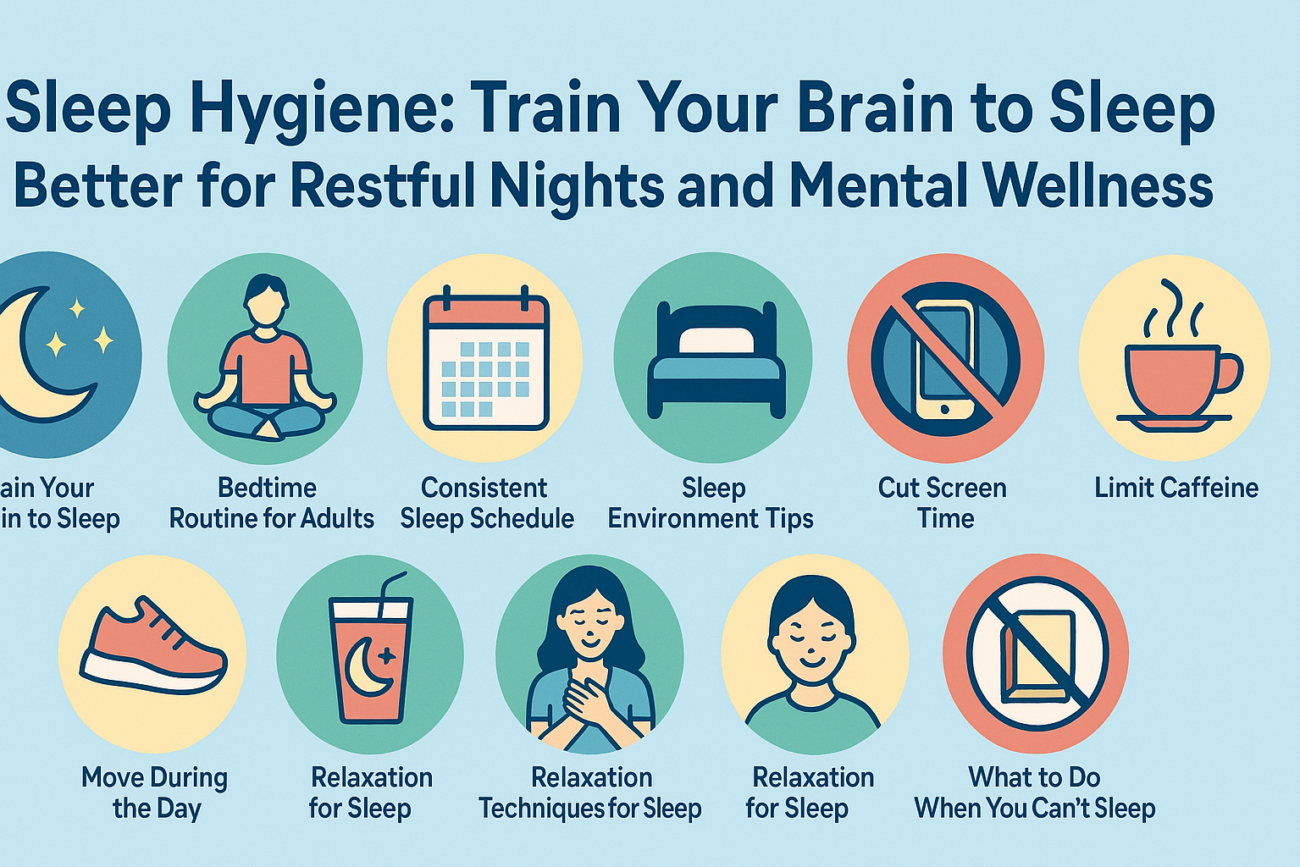Introduction: Sleep Hygiene Is the Foundation of Better Mental Health
Do you have trouble falling asleep or waking up tired? You’re not alone. Many people—kids, teens, and adults—struggle with getting a good night’s rest. But there’s good news: good sleep hygiene can help.
This guide breaks it down in an easy and fun way, even if you’re just 13. You’ll learn simple tips, bedtime routines, and even how the Prophet Muhammad (PBUH)’s sleep habits match with what science says today.
What Is Good Sleep Hygiene?
Sleep hygiene means having habits that help your body and brain know it’s time to sleep. Just like brushing your teeth keeps your mouth healthy, good sleep hygiene keeps your mind and body well-rested.
Why Sleep Matters for Your Brain and Mood
Getting enough sleep helps you:
- Feel happy and less stressed
- Think clearly and focus better
- Have more energy during the day
- Stay healthy and fight off sickness
Good sleep is also super important for your mental health. People who sleep well feel better and do better in school, work, and life.
Train Your Brain to Sleep
You can’t force yourself to sleep—but you can train your brain to sleep better.
Here’s how:
- Sleep at the same time every night
- Wake up at the same time every morning
- Avoid staying up late on weekends
This is called having a consistent sleep schedule, and it teaches your body when it’s bedtime.
Easy Bedtime Routine for Adults and Teens
A simple routine before bed helps your brain know it’s time to sleep.
Try this routine:
- Stop using your phone or screen 30–60 minutes before bed
- Turn off bright lights and make the room quiet
- Brush your teeth and put on pajamas
- Read a calming book or listen to soft music
- Say a short prayer or do light stretching
These are easy, calming steps that work for both adults and teens. They are part of a strong bedtime routine for adults, too.
Improve Sleep Naturally with These Tips
Want to sleep better without medicine? Try these:
- No caffeine after 3 PM
- No big meals right before bed
- Keep your room cool and dark
- Use your bed only for sleep (not homework or TV)
- Try calming activities like breathing or quiet meditation
These are relaxation techniques for sleep that help you feel sleepy naturally.
Sleep Environment Tips
Make your bedroom a sleep-friendly zone:
- Dark: Use blackout curtains or eye masks
- Quiet: Use earplugs or a white noise machine
- Cool: Keep the temperature between 60–67°F (16–19°C)
- Comfy: Use a cozy pillow and mattress
These sleep environment tips help your brain relax and fall asleep faster.
How to Fall Asleep Faster
Here are some fast tricks:
- Try deep breathing: Inhale for 4 seconds, hold for 4, exhale for 4
- Tense and relax your muscles one by one
- Picture something peaceful, like a beach or quiet forest
If your mind is busy, write your thoughts in a notebook to clear your head.
The Sunnah Sleep Routine: Ancient Wisdom, Modern Science
Prophet Muhammad (PBUH) taught amazing habits that science now supports. This is called the Sunnah sleep routine.
Here’s what he taught:
- Do ablution (wudu) before bed to feel clean and calm
- Say a short dua (prayer) before sleeping
- Sleep on your right side, not your back
- Avoid staying up late without purpose
These are simple but powerful Islamic sleep practices. The Prophet’s bedtime routine shows us how sleep is not just about the body—but also about peace of mind.
“When you go to bed, perform ablution as you do for prayer, then lie down on your right side…” (Sahih al-Bukhari)
Final Thoughts: Sleep Better, Live Brighter
Now that you know what is good sleep hygiene, you can take control of your nights. Build your routine, set a schedule, and try natural tips to relax. Whether you follow science, spiritual teachings, or both—better sleep starts with small changes.
🌙 Sleep better. Think clearer. Feel happier.
SleepFoundation.org
CDC on sleep health

